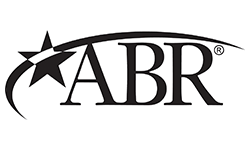1. A mortgage pre-approval letter
Unless you can make an all-cash offer to buy a home, you’ll need mortgage financing. In competitive housing markets, many sellers won’t even consider an offer without a pre-approval letter. To get a mortgage approval, you’ll typically have to meet the following minimum mortgage requirements:
- A credit score between 500 and 620
- Stable income with two years of verifiable, consistent earnings
- A down payment of at least 3% (although there are no-money-down programs)
- Total monthly debt that makes up no more than 50% of your gross monthly income
- Money to cover closing costs that typically range from 2% to 6% of your loan amount
2. A home buying wish list
This is where you decide on your home must-haves — the non-negotiables that typically fall under the “needs” rather than “wants” category. The Department of Housing and Urban Development (HUD) provides a sample wish list that covers basics including:
- What part of town you want to live in
- What price range you want to stay in
- The home’s school district
- Whether you want a new home or an older home
- Which type of house you want (one-story, two-story, townhouse, mobile home, etc)
- Which style of home (contemporary, traditional, southwestern, colonial or no preference)
- Whether you’d be willing to do fix-up work and if so, what your budget is for repairs
- Transportation needs (buses, trains or distance of the home from work)
- Special needs, such as wheelchair access
- The lot and yard size
- How many bedrooms you must have
- How many bathrooms you must have
- The size of the home
- Home systems (like A/C, security systems)
- The age of the home
- Garage
- Fenced yard
- Home office
- Whether you want to live in a community association
Anything not on this list is typically considered a “want,” and may include tennis courts, gazebos or swimming pools, which HUD considers “luxury” items. Other examples of wants might be home automation, theater rooms, game rooms or even a fireplace.
3. Online house hunting apps
With your financing lined up and your wish list in hand, you’re ready to learn what’s for sale in the price range you’d like to buy. This can be a sobering reality check for aspiring homebuyers — especially if you live in a competitive housing market where prices are spiking with few houses to choose from.
Online house hunting is your best bet at this stage because you’ll avoid the persuasive sales pitches of an in-person, open-house real estate agent or the allure of cookies and coffee in a perfectly staged new-build home. You may need to adjust your mortgage loan amount or your house hunting wish list, depending on what you find out. Pay special attention to:
- How long houses are on the market. This will give you an idea of how quickly you’ll need to act if you find a home you like. In a seller’s market, there are more buyers than available homes, which means you have to act fast. With a buyer’s market, you’ll have more homes to choose from, which gives you more haggling power over the price of the home.
- How much prices are going up every month. In hot housing markets, bidding wars are common and you may have to offer more than the seller’s asking price to get your offer accepted. With a soft market, you can offer less than the asking price, ask the seller to pay some of your closing costs or pay for repairs or upgrades to the home.
4. A real estate agent
An experienced real estate agent may make the difference between getting the home you want or settling for something less. The agent’s job is to help you find a home at the best price by keeping track of market conditions, preparing competitive offers and haggling until the offer is accepted. There are three factors that determine the best agent for you.
Market expertise. Top agents know the neighborhoods you’re interested in and can give you fast and accurate information about everything from school trends and local homeowners association requirements to recent price trends.
Personal touch. Buying a home is an emotional and often stressful experience, and you don’t want to spend entire weekends of your life house hunting with someone you don’t get along with. If you don’t trust or even like the agent you’re dealing with, it’s best to keep looking until you find a better match.
Communication skills. The homebuying process involves lots of legal and real estate terms, with strict deadlines that must be met along the way. Set expectations for how you want to be contacted (text, phone call, email, etc.), how often you want to be updated from the beginning of the process and hold your agent to those standards.
THINGS TO KNOW
Buyer’s agents sometimes ask you to sign a buyer’s agreement with details about the services they will provide. This may be a good way to hold the agent accountable to act in your best interests. However, look out for “exclusive” agreements that limit you to representation solely by one agent for a set time period. You may end up paying them a commission if the relationship goes sour and you find a home before the exclusive agreement timeline expires.
5. Your own neighborhood ‘check-up’
Once you’ve looked at some houses with your real estate agent, take a trip on your own to check out the neighborhood and surrounding areas during different times of the day and night. Do a little extra digging about the safety of the area by checking crime statistics and neighborhood watch reports.
Drive around and check out how close grocery stores, pharmacies, parks, department stores, restaurants are to the homes you like. Striking up a conversation with a neighbor may reveal details that seal the deal or raise red flags.
6. An open mind about for-sale-by-owner deals
If you drive by a for-sale by owner (FSBO) sign in an area you like, it may be worth a call to compare the price the owner is offering to other homes for sale in the area. Owners often give the FSBO option a shot to avoid paying real estate commission fees, which means you may get a better price on the sale of the home.
Be forewarned: You’re on your own when it comes to negotiating the price and all the closing costs with the seller. Also, don’t skimp on title insurance: It will protect you from buying a home with judgments, tax liens or other ownership issues that could cause major headaches later.
7. The names of several home inspection companies
A home inspection is a written report by a professional home inspector that details the condition of a home. Real estate agents typically have referral relationships with home inspection companies, but you can search for your own home inspector through the American Society of Home Inspectors or the National Association of Home Inspectors.
You’ll usually shell out $300 to $500 for the inspection, and a purchase contract typically gives you a set time period to back out of the deal if the seller isn’t willing to fix or you aren’t willing to accept the issues that pop in the inspection report.
THINGS TO KNOW
Homebuyers often confuse the home inspection with a home appraisal. A home appraisal is a report prepared by an unbiased real estate appraiser to determine a home’s market value, and it’s typically required if you need a mortgage. The purpose of the report is to estimate if the sales price is fair compared with recent sales of similar homes near yours and touch on any obvious problems (like a leaky roof or broken window).
8. A list of home warranty companies
If issues pop up in the home inspection, the seller may offer to pay for a home warranty, which is a service contract to cover the cost to repair or replace your home’s systems and appliances. As long as you know what the warranty covers, and whether you’ll have to pay any service fees related to any claims, it’s worth a look.
You may save money or get better warranty coverage if you compare the seller-offered home warranty to the home warranty companies on your own list. The average cost for a home warranty ranges from $300 to $600, according to Consumer Affairs.
9. Use all your senses when you walk through the home
Homeowners often get a “vibe” about a home. They may even have superstitions about everything from the street name to the number on the front yard mailbox. In fact, a recent LendingTree study showed nearly half of the homebuyers surveyed were willing to pay up to about $38,000 for a house that feels “lucky.”
Of course, other senses such as smell may give you a clue about previous water or mold damage, or a pet that had a little too much free reign of the house. ATTOM Data Solutions’ most recent U.S. Home Sales Report revealed homeowners stay in their homes roughly eight years, which is a long time to spend in a home that doesn’t appeal to all your senses.
10. Beware of scam warning signs
Real estate fraud is a very real problem, and scammers take advantage of home buying’s emotional pull to trick people into shelling out hard-earned money for fraudulent schemes.
Be wary of any of the following warnings signs of real estate fraud:
You can’t look at the house. This may seem obvious, but there’s no reason any seller or agent should refuse your request to see the inside of a home.
You’re asked to wire funds directly to the seller or agent. There should always be a third-party attorney or escrow company involved in any legitimate purchase transaction. Wire instructions should identify the name of a third-party law firm or escrow company, and should never go to the seller or real estate agent.
The home is sold with “rent-to-own” terms. This scheme involves convincing a homebuyer that can’t qualify for a home loan to pay upfront money and a “higher” monthly payment, with a portion contributed toward a down payment to ultimately buy the home. According to the Federal Trade Commission (FTC), rent-to-own fraudsters often don’t own the home, haven’t paid property taxes, avoid promised repairs on a dilapidated home or don’t disclose that the home is in foreclosure.
What to avoid while you’re house hunting
The following are some of the most common mistakes you can make while house hunting, mistakes that could turn your home buying dream into a nightmare:
- Changing jobs. Lenders verify your employment and income several times during the loan process, and any change could stall the loan process, or even result in a loan denial.
- Deposit large chunks of cash. Lenders need a paper trail of any funds used for a home purchase. Make sure you have paperwork for any cash stash you plan to use or discuss strategies for how to handle the deposits with your loan officer.
- Paying credit late. The house-hunting process can take months, and mortgage lenders typically pull a new credit report after 120 days. Any payments made at least 30-60 days late could drop your score and kill your mortgage approval if the lender has to pull an updated credit report.
- Cranking up credit card balances. It may be tempting to buy things for your home or use credit to save up for a down payment, but doing so could increase your total debt so much that your mortgage approval is overturned.
- Buying furniture or household items on “same-as-cash” terms. Even if the credit offer says you don’t have any payments for six months, a mortgage lender still counts the payment against you based on the amount you borrow. Wait until the keys are in your hands to make any purchases with credit for your home.
Denny Ceizyk




